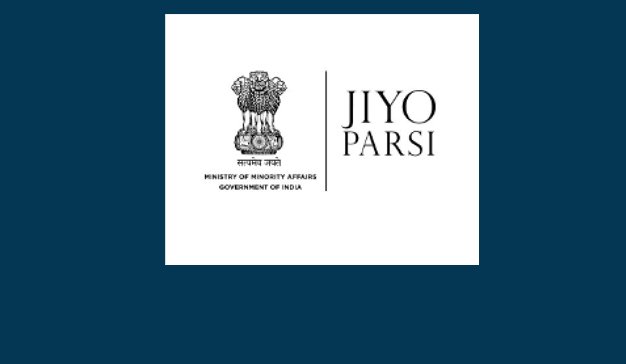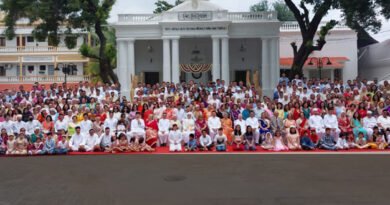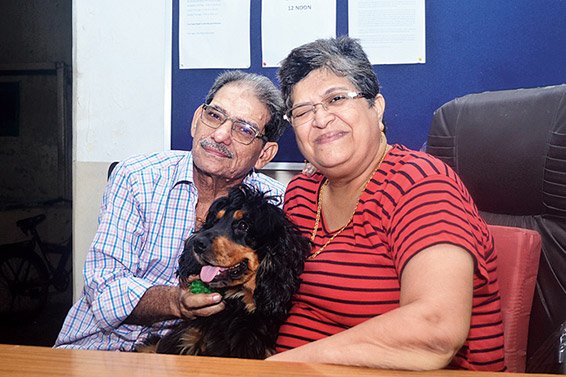Government Encourages Online Dating To Bump Up Parsi Population
The Minority Affairs ministry has devised a scheme to ‘restore’ the Parsi population in country, which apparently has been seen to be dwindling because of little interest in marriage among the eligible bachelors.
About 30 per cent of eligible adults are unmarried in the Parsi community, statistics show.
In light of the fact, the ministry has come up with ‘Jiyo Parsi’, a scheme that encourages ‘online dating’ and marriage counselling among Parsi men and women.
Shernaz Cama, Director of Parzor Foundation, one of the implementing bodies for this scheme, said that it is necessary to encourage people of the Parsi community to marry and have children because the total fertility rate in this community is about 0.8 per couple and an average of 800 people die every year against the birth of 200 to 300 children, which is worse in comparison to the situation of Hindus, Muslims, Sikhs and Christians.
According to the new National Health and Family Welfare Survey (NHFWS), the total fertility rate is 1.94 in the Hindu community, 2.36 in the Muslim community, 1.88 in the Christian community and 1.61 in the Sikh community.
According to the 2011 census, the population of the Parsi community in the country was 57,264 as against 1,14,000 in 1941.
The Ministry of Minority Affairs launched the ‘Jiyo Parsi’ scheme in November 2013 with the intention to balance the population of the Parsi community and increase the total fertility rate, for which a budget of ₹ 4 to 5 crore is provided every year.
“Since the launch of the scheme (till July 15), 376 babies are born, which is more than the average of 200 babies born in the Parsi community every year,” Cama told PTI.
He said that the biggest reason for the low birth in the community is unmarried adults.
“It has been found in the study that about 30 per cent adults of Parsi community are unmarried even though they are eligible for marriage.
“About 30 per cent of those who get married have an average of one child each. About 30 per cent of the people are over 65 years of age. The average age of women marrying in the Parsi community is 28 years and that of men is 31 years,” he said.
“The main reason for not getting married is the strong feeling of independence among youth, especially women. They also have the responsibility of taking care of their elderly, which is another reason why they are not able to get married.
“The current situation is that each young couple has the responsibility of taking care of eight elders, although the government gives monthly help of ₹ 4,000 to the people earning less than 10 lakh rupees to take care of the elderly, it is not enough.” Cama, who is an associate professor at the Lady Shri Ram College, also said that not only did many marriages take place during the Covid-19 pandemic, but a large number of babies were also born.
“Due to the efforts made under the scheme, 61 children were born in 2020 and 60 children were born in 2021,” he said.
Explaining the efforts being made to encourage Parsi youth to get married, he said, “In the post-Covid era, we started ‘online dating’ which has yielded good results. There was a break in between as our counsellors started working in the field. Now we are resuming it.”
Referring to the modus operandi of organising online dating for marriage, Cama said, “Our counsellors attend community events at the local level and gather information about the likes and dislikes of men and women willing to get married, their expectations from their future life partner along with some other personal details.”
“After this, these people are introduced through online medium. These people take decision regarding marriage as per their discretion. We just provide them a platform to choose a life partner,” she said.
Under marriage counselling, face-to-face meetings are organised.
Shernaz said that those adults who are determined to not get married are counselled to change their minds, adding, “We have achieved decent-level of success in this as well.” They say that due to getting married at an older age, many Parsi couples face problems like infertility, in such a situation they are provided annual assistance of up to ₹ 8 lakh each for ‘IVF’ and other advanced medical services.
Social conservatism is also a major challenge to maintain population balance in the Parsi community.
For example, if a Parsi woman marries a man of another religion, her child will not be counted in the community, despite the couple’s wishes.
“There is nothing religious in such orthodoxy. These are the rules made by the male-dominated society. Religious institutions and courts also have to decide in this matter,” Cama added.
Source: Click Here





